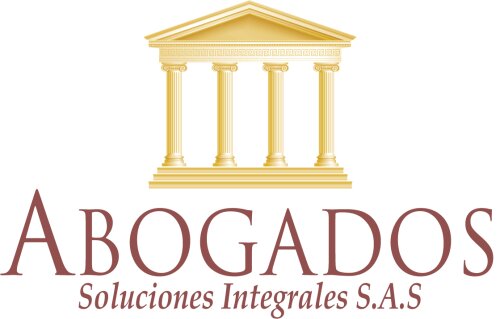Best Transportation Lawyers in Colombia
Share your needs with us, get contacted by law firms.
Free. Takes 2 min.
Or refine your search by selecting a city:
List of the best lawyers in Colombia
About Transportation Law in Colombia
Transportation law in Colombia is a multifaceted area that deals with the regulations governing the movement of people and goods, both domestically and internationally. The transportation infrastructure in Colombia includes a network of roads, railways, airports, and waterways, and is crucial to the country's economy. Legal frameworks are established to ensure safety, efficiency, and fairness in the operation of all transportation modes.
The Ministry of Transport oversees the regulation and implementation of transportation policies at the national level, while local authorities manage municipal transportation systems. Various aspects of transportation law include vehicle registration, licensing, traffic regulations, public transportation management, and logistics industry regulations.
Why You May Need a Lawyer
There are numerous situations where individuals or companies may require legal assistance in transportation matters. Common scenarios include:
- Disputes over transportation contracts or logistics agreements.
- Accidents involving commercial or private vehicles leading to personal injury claims or insurance disputes.
- Compliance issues with transportation regulations, such as licensing and vehicle standards.
- Navigating complex import and export logistics laws for businesses.
- Issues involving freight claims or cargo disputes.
- Legal challenges related to the establishment and operation of transport businesses.
Local Laws Overview
Colombian transportation laws are impacted by both national statutes and international agreements. Key aspects include:
- Traffic regulations: These include laws regarding speed limits, driving under the influence of alcohol, and the requirement to use seatbelts and helmets.
- Vehicle registration and licensing: All motor vehicles must be registered, and drivers need to obtain a valid license.
- Public transportation: Regulations are in place for the operation of buses, taxis, and ride-sharing services, including safety standards and fare controls.
- Commercial transport regulations: These cover the movement of goods within and across borders, including customs declarations, tariffs, and import/export controls.
- Aviation and maritime laws: Legal frameworks govern the operation of airports, air carriers, ports, and shipping companies, including safety and security standards.
Frequently Asked Questions
What documents are required to drive legally in Colombia?
Drivers need a valid driver's license, vehicle registration documents, proof of insurance, and national identification.
Can foreign nationals drive in Colombia?
Yes, foreign nationals can drive in Colombia with an international driving permit (IDP) in conjunction with their home country's driver's license.
How do I report a traffic accident?
You should contact local police immediately and exchange information with the other party involved. It is essential to obtain a report for insurance purposes.
What are the penalties for drunk driving in Colombia?
Penalties can include fines, license suspension, and possible imprisonment depending on the severity and occurrence of the offense.
Are there special regulations for transporting goods within Colombia?
Yes, businesses must comply with regulations concerning goods transportation, including permits and safe transport practices.
How do I obtain a commercial transport license?
Licenses are issued by the Ministry of Transport, requiring compliance with specific regulations and safety standards.
What are the rights of public transportation passengers?
Passengers have rights to safety, timely transportation, and fair pricing. Complaints can be filed with local transport authorities.
How can I start a transport business in Colombia?
You need to register the business, obtain the necessary licenses, and comply with national transport regulations, which may include zoning and safety regulations.
What is Pico y Placa?
Pico y Placa is a traffic rationing strategy used in several Colombian cities to reduce congestion by restricting vehicle movement based on license plate numbers at certain times.
What are the requirements for transporting hazardous materials?
Transporting hazardous materials requires special permits and adherence to stringent safety guidelines set by the Ministry of Environment and Sustainable Development.
Additional Resources
For further assistance, consider reaching out to the following organizations:
- Ministry of Transport: Responsible for national transportation policies and regulations.
- National Road Safety Agency: Focuses on road safety and providing guidelines and information related to driving regulations.
- Superintendency of Ports and Transport: Overseeing the infrastructure and services of transport operations in Colombia.
- Local Traffic Departments: Provide information and services related to vehicle registration and traffic regulations in specific regions.
Next Steps
If you find yourself needing legal advice in the field of transportation in Colombia, consider taking the following steps:
- Assess your situation to identify the specific legal issue you need help with.
- Contact a lawyer who specializes in transportation law to discuss your case. Many offer initial consultations, which can help you understand your options.
- Gather all relevant documentation relating to your issue, such as contracts, permits, or reports, to provide your lawyer with comprehensive information.
- Explore local bar association directories to find qualified and reputable attorneys experienced in transportation matters.
- Use the recommended resources and agencies for additional guidance and governmental procedures that may apply to your case.
Lawzana helps you find the best lawyers and law firms in Colombia through a curated and pre-screened list of qualified legal professionals. Our platform offers rankings and detailed profiles of attorneys and law firms, allowing you to compare based on practice areas, including Transportation, experience, and client feedback.
Each profile includes a description of the firm's areas of practice, client reviews, team members and partners, year of establishment, spoken languages, office locations, contact information, social media presence, and any published articles or resources. Most firms on our platform speak English and are experienced in both local and international legal matters.
Get a quote from top-rated law firms in Colombia — quickly, securely, and without unnecessary hassle.
Disclaimer:
The information provided on this page is for general informational purposes only and does not constitute legal advice. While we strive to ensure the accuracy and relevance of the content, legal information may change over time, and interpretations of the law can vary. You should always consult with a qualified legal professional for advice specific to your situation.
We disclaim all liability for actions taken or not taken based on the content of this page. If you believe any information is incorrect or outdated, please contact us, and we will review and update it where appropriate.
Browse transportation law firms by city in Colombia
Refine your search by selecting a city.
















